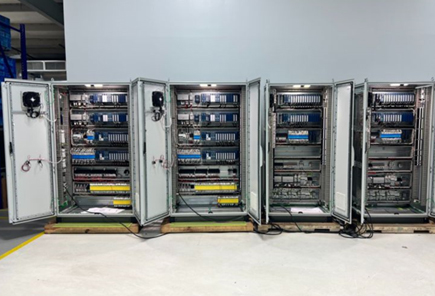Control systems engineering plays a vital role in solving complex problems across various industries. From regulating temperature in a chemical plant to controlling the movement of a spacecraft, control systems are essential for ensuring processes run smoothly and efficiently. In this article, we will explore how control systems engineering solutions are employed to address intricate problems in real-world applications.
The Fundamentals of Control Systems Engineering
Control systems engineering involves designing, analyzing, and implementing systems that regulate the behavior of dynamic systems. These systems are essential for maintaining desired outputs by adjusting inputs based on feedback mechanisms. Some key components of control systems engineering include:
1. Controllers
- Controllers are devices that receive input signals, process them, and generate output signals to regulate the behavior of a system.
- There are various types of controllers, including proportional-integral-derivative (PID) controllers, which are commonly used in industrial applications.
2. Sensors
- Sensors are used to measure the output of a system and provide feedback to the controller.
- They play a critical role in ensuring that the system remains stable and operates within specified limits.
3. Actuators
- Actuators are devices that receive signals from the controller and convert them into physical actions to adjust the system's behavior.
- Examples of actuators include valves, motors, and pumps.
Applications of Control Systems Engineering
Control systems engineering finds applications in a wide range of industries, contributing to the efficient operation of complex systems. Some common applications include:
1. Aerospace
- Control systems are crucial in aerospace engineering for stabilizing aircraft, controlling flight paths, and managing propulsion systems.
- Autopilot systems rely on control algorithms to navigate aircraft and maintain safe and efficient flight operations.
2. Manufacturing
- In manufacturing industries, control systems are used to regulate production processes, monitor equipment performance, and optimize product quality.
- Automated control systems can improve productivity, reduce waste, and enhance overall operational efficiency.
3. Energy
- Control systems play a critical role in energy generation and distribution, including power plant operations, grid management, and renewable energy systems.
- Smart grid technologies utilize advanced control systems to balance energy supply and demand efficiently.
Challenges and Solutions in Control Systems Engineering
While control systems engineering offers numerous benefits, it also presents challenges that engineers must overcome to ensure optimal system performance. Some common challenges include:
1. System Complexity
- Complex systems may exhibit nonlinear behaviors, uncertainties, and time delays, making control design challenging.
- Engineers use advanced control techniques such as model predictive control and adaptive control to address system complexity.
2. Stability and Robustness
- Maintaining stability and robustness in control systems is essential to prevent system failures and ensure reliable operation.
- Control engineers employ robust control strategies and tuning methods to enhance system stability and performance.
3. Integration and Interfacing
- Integrating control systems with existing infrastructure and interfacing with different components can pose compatibility issues.
- Engineers use standard communication protocols and interface technologies to ensure seamless integration of control systems.
Future Trends in Control Systems Engineering
As technology continues to evolve, control systems engineering is poised to undergo significant advancements. Some emerging trends in the field include:
1. Cyber-Physical Systems
- Cyber-physical systems integrate computational algorithms with physical processes, enabling real-time monitoring and control of interconnected systems.
- These systems offer opportunities for improved automation, efficiency, and decision-making in complex environments.
2. Internet of Things (IoT)
- The IoT allows for connectivity and communication between devices, sensors, and control systems, enabling remote monitoring and optimization of processes.
- IoT technologies are revolutionizing the way control systems interact with the physical world, leading to increased efficiency and reliability.
3. Machine Learning and AI
- Machine learning algorithms and artificial intelligence (AI) are being increasingly integrated into control systems for adaptive and predictive control.
- These technologies enable control systems to learn from data, optimize performance, and adapt to changing operating conditions.
In conclusion, control systems engineering solutions play a crucial role in addressing complex problems across various industries. By leveraging fundamental principles, advanced techniques, and emerging technologies, engineers can design robust control systems that enhance efficiency, reliability, and performance in dynamic environments.
